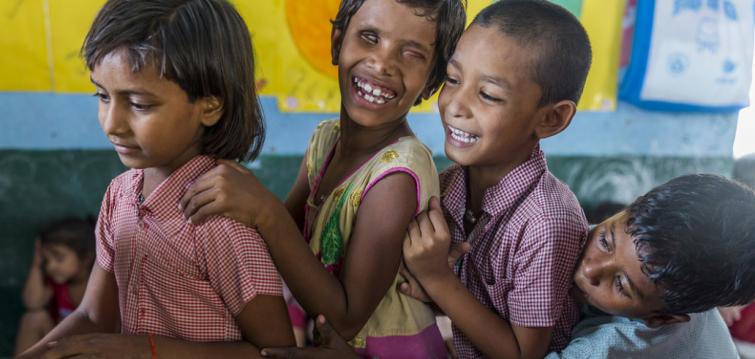
93 million children with disabilities ‘among the most likely to be left behind’: UN rights chief
New York, Mar 5 (IBNS): States should do more for an estimated 93 million children with disabilities who are “among the most likely to be left behind and the least likely to be heard”, UN High Commissioner for Human Rights, Michelle Bachelet, said on Monday.
Speaking at a Human Rights Council event highlighting how disabled youngsters are more exposed to violence, abuse and neglect, Bachelet explained that they have the same rights as all children.
“Children with disabilities must have a say in all matters that affect the course of their lives…They must be empowered to reach their full potential and enjoy their full human rights – and this requires us to change both attitudes and environmental factors.” Ms. Bachelet insisted.Their empowerment depends upon these rights being realized, she said – particularly the equal right to education – before highlighting how learning gives everyone the potential to escape poverty and exploitation.
Discrimination against children with disabilities can begin as soon as they are born, the High Commissioner noted, from authorities choosing not to register births, to separating them from families and placing them in care institutions.
Another key factor preventing the inclusion of disabled youngsters in their communities, and their ability to exercise their rights, is ongoing segregation into special schools, institutions and sheltered homes.
“This is a legacy of a model which has caused exclusion and marginalisation,” said Catalina Devandas Aguilar, Special Rapporteur on the rights of persons with disabilities. “We can no longer have children being hidden away and isolated, children with disabilities must have the opportunity to dream of a full and happy life,” she added.
Addressing the Council, Ms. Aguilar insisted that children with disabilities “face stigma, discrimination, prejudice and barriers. They are abandoned, neglected, socially excluded, segregated, over protected, not given accessibility and the services and support they need.”
In addition to these challenges, she said one in three school-age children with disabilities do not have a primary education, while a child with learning difficulties is almost five times more likely to suffer sexual violence than their peers. /p>
Echoing her message, Moldova children’s rights advocate DumitriÅ£a Cropivnitchi from the non-governmental organization Lumos, described her experience of discrimination, linked to disability.
“Because of my disability, at the age of five, I was sent to live in an institution as it was the only place I could receive an education,” she said. Can you imagine what it would be like, she added, "for a five-year old to be sent to a huge cold building, that smelt of porridge, and to have her parents replaced by educators, to share a room with 11 others, clothes and live by the rules of the institution?”
After staying there for five years, Cropivnitchi returned home and benefited from reforms that introduced mainstream schools that she could attend, including one in her village.
“It is indisputable that childhood is meant to be the most beautiful yet also, the most vulnerable stage in life,” she told the Human Rights Council. “During childhood, a child is dependent on adults. Children with disabilities can continue to be dependent and vulnerable their whole life… I ask myself now, how is this correct', she said, to do this to "the thousands, millions of children around the world?”
Image Credit: UNICEF/UN0280961/Vishwanathan
Support Our Journalism
We cannot do without you.. your contribution supports unbiased journalism
IBNS is not driven by any ism- not wokeism, not racism, not skewed secularism, not hyper right-wing or left liberal ideals, nor by any hardline religious beliefs or hyper nationalism. We want to serve you good old objective news, as they are. We do not judge or preach. We let people decide for themselves. We only try to present factual and well-sourced news.







